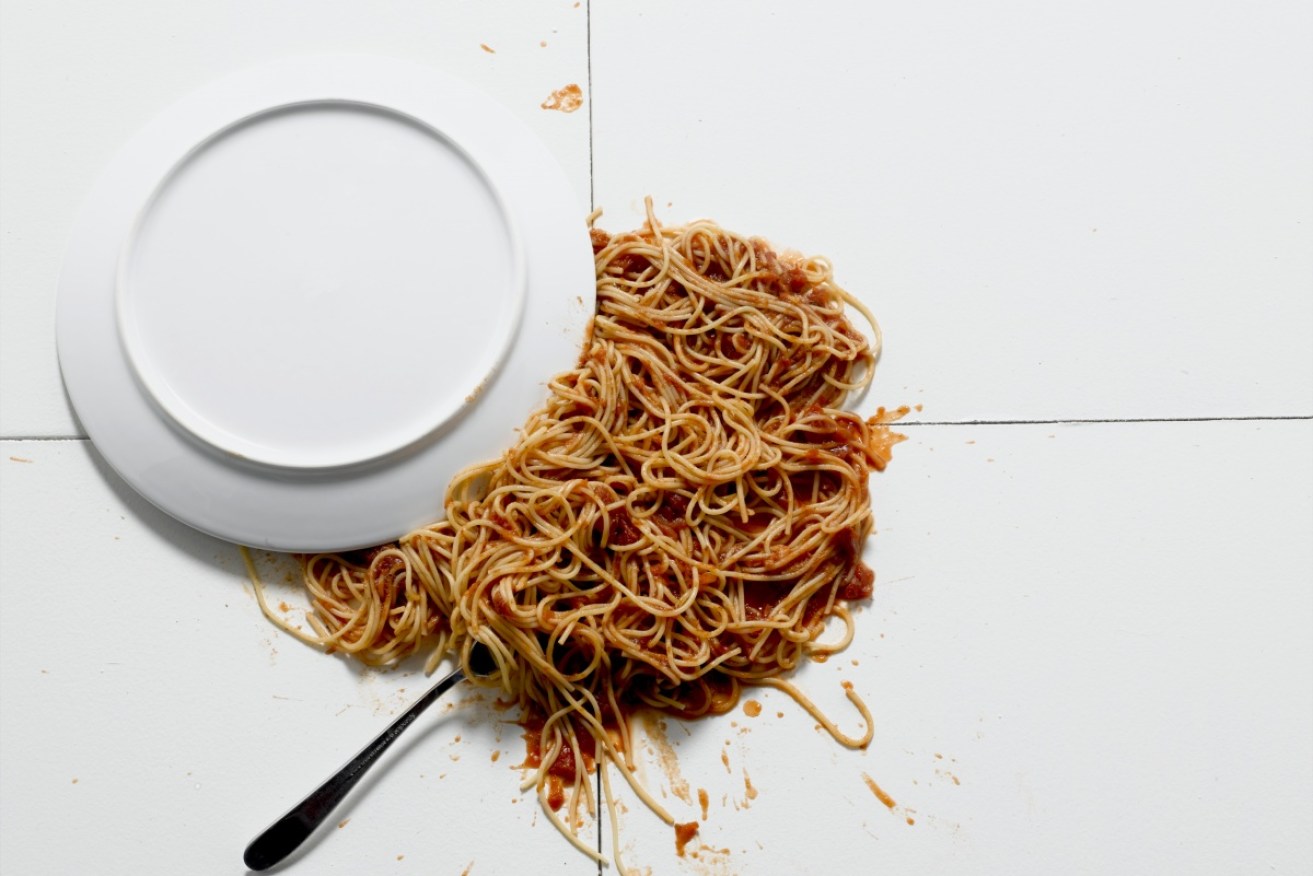Does the five-second rule really apply to food?


So, can you still eat it? Photo: Getty
Did you just pick up a marshmallow treat or, even worse, a buttery face-down piece of toast off the floor and start eating it again?
Are you confident you won’t get sick because you followed the five-second rule, as you have done since you were a child?
Then it’s amazing you’re still alive.
Scientists from the School of Environmental and Biological Sciences at Rutgers University, New Jersey, have concluded the five-second rule is a death trap or worse: a potential agent of diarrhoea.
Professor Donald Schaffner, a specialist in food science and lead author of the paper, found that bacteria transfer happens at different rates, depending on the food dropped (watermelon is a loaded gun) and the surface on which it’s been dropped – carpet being the hero because it tries to hold on to the germs for itself.
“The popular notion of the five-second rule is that food dropped on the floor, but picked up quickly, is safe to eat because bacteria need time to transfer,’’ Schaffner said, in a prepared statement from the university.
“We decided to look into this because the practice is so widespread. The topic might appear ‘light’ but we wanted our results backed by solid science.’’

We’ve all felt this heartbreak. Photo: Getty
How they did it
The researchers grew some germs – Enterobacter aerogenes, a nonpathogenic “cousin” of Salmonella naturally occurring in the human digestive system. For the sake of rigour, the bacteria was grown in two different types of liquid media – tryptic soy broth or peptone buffer.
They infected four different surfaces: stainless steel, ceramic tile, wood and carpet.
Four different foods were dropped from a height of 12.5cm on the germs – watermelon, bread, bread and butter, and gummy candy.
The dropped food was left to remain in peril for four different contact times – less than one second, five, 30 and 300 seconds.
This gave the researchers a total of 128 scenarios each of which were replicated 20 times each.
The soiled surfaces and the food samples were analysed for contamination, yielding 2,560 measurements.

Carpet transfers less bacteria to dropped food. Photo: Getty
The alarming results
They found that in some instances, in cross-contamination, the germs infected the food in less than half a second.
Watermelon was the most contaminated; gummy candy (think jelly baby) the least. Tiles and stainless steel allowed a faster rate of transfer than carpet – but the results were variable with wood.
“The topography of the surface and food seem to play an important role in bacterial transfer,’’ Professor Schaffner said.
More than time left to stew, moisture proved a driving factor in cross-contamination.

‘Wet’ food means more bacteria. Photo: Getty
“Transfer of bacteria from surfaces to food appears to be affected most by moisture’’ Schaffner said.
“Bacteria don’t have legs, they move with the moisture, and the wetter the food, the higher the risk of transfer. Also, longer food contact times usually result in the transfer of more bacteria from each surface to food.’’
Regarding the latter, we might say: Duh! That was the point of the five-second rule all along.
“The five-second rule is a significant oversimplification of what actually happens when bacteria transfer from a surface to food,’’ Schaffner said. “Bacteria can contaminate instantaneously.’’
The research findings have been published in the journal Applied and Environmental Microbiology with the germ-catchy title Longer Contact Times Increase Cross-Contamination of Enterobacter 1 aerogenes from Surfaces to Food.








